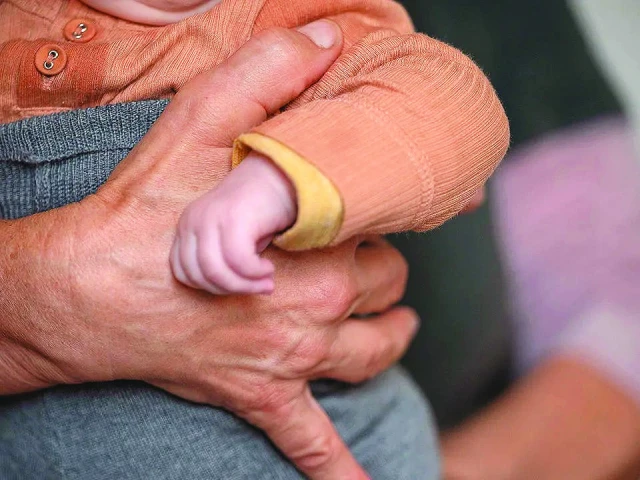Germany to raise mothers' pensions earlier than planned
Change will benefit 10 million women

The Christian Social Union (CSU), the Bavarian sister-party to Chancellor Friedrich Merz's conservative Christian Democratic Union (CDU), appears to have persuaded its big sibling to implement one of its own pet projects: Raising the pension subsidy for older parents — colloquially known as the Mütterrente, or "mothers' pension" — one year earlier than planned, reported DW.
The pension rise for mothers who had children before 1992 comes with a price tag of around €5 billion annually and is now set to be implemented on January 1, 2027, despite major cuts elsewhere in Germany's federal budget.
According to German media reports, the government still has a gap of some €172 billion ($198 billion) for its financial planning for the years 2027 to 2029.
The planned rise in 2027 is the third of three steps and adds an extra half a percentage point to the pension — that works out at around €20 per child per month for children born before 1992. Previously, mothers whose children were born after 1992 received a slightly higher percentage.
CSU General Secretary Martin Huber called the move the "completion" of the mothers' pension plan, and said that 10 million women would profit. "For many female pensioners, this rise makes a big difference," he told the RND news network.
Though the change will iron out a disparity between the pensions received by older and younger generations, experts say the measure does nothing to close the gender pay gap between men and women, or indeed overall inequality in the country. Despite the name, all parents are eligible for the "mothers' pension," as are foster parents and grandparents, if the child lived with them for a significant amount of time.
Peter Haan, specialist in state finance policy at the German Institute for Economic Research (DIW), and co-author of a study on the pension, thinks it's not an effective way to close the "gender pension gap."
The key question, as far as Haan is concerned, is who actually benefits. It does, he admitted, make superficial sense for older mothers to get the same benefits as those who had their children after 1992.
"But the pensions for that generation were significantly higher than for the younger generation," Haan told DW. "And secondly, it's a 'watering can' measure that is equal for all mothers, and so doesn't specifically do anything to combat poverty among older people."
Haan added, "If you really want to reduce the gender pension gap, you have to change the labour market relations between men and women, by promoting more participation on the labour market for women, for example, with better childcare."






















COMMENTS
Comments are moderated and generally will be posted if they are on-topic and not abusive.
For more information, please see our Comments FAQ